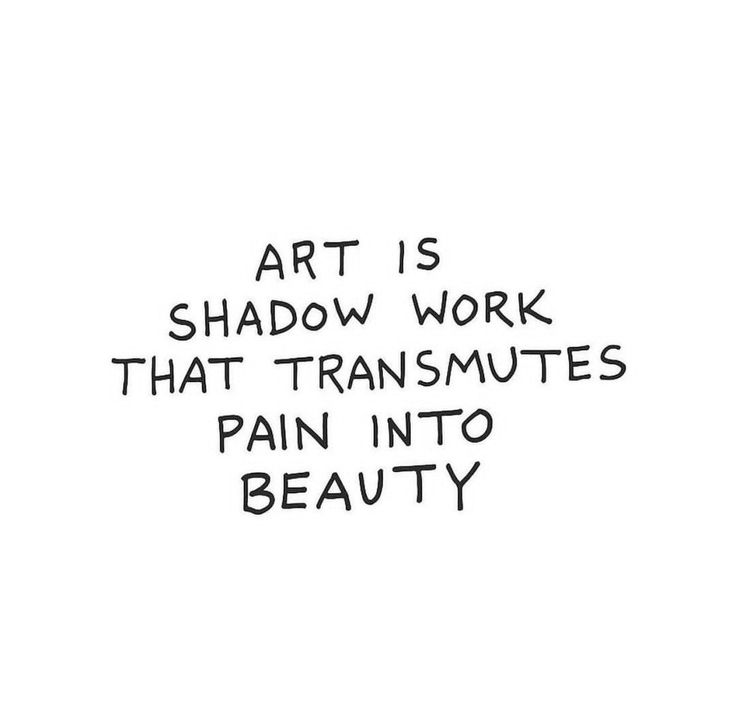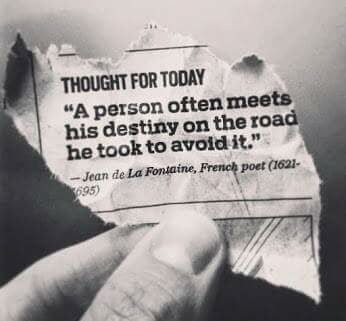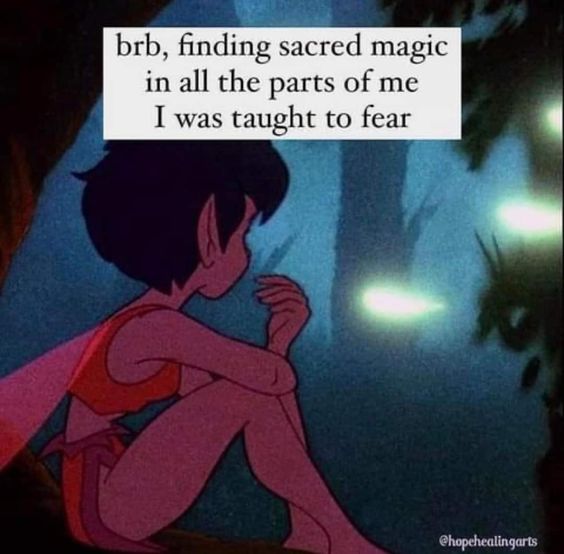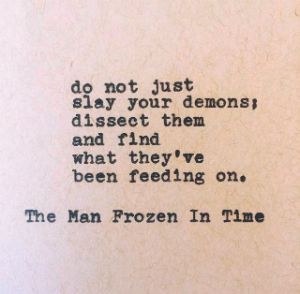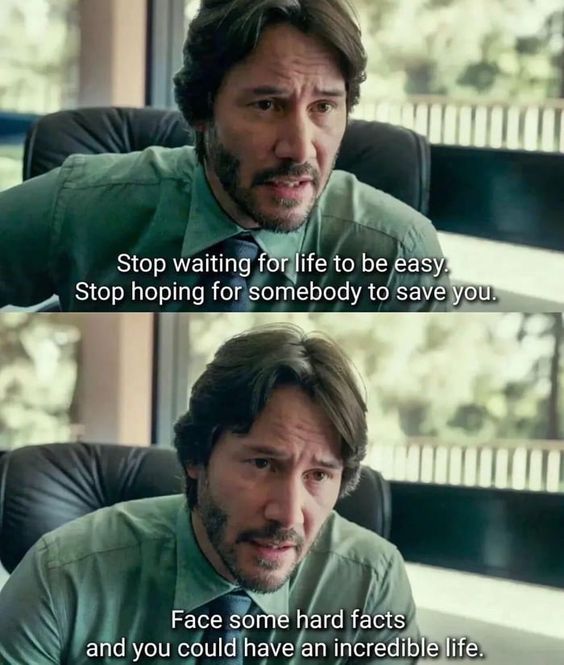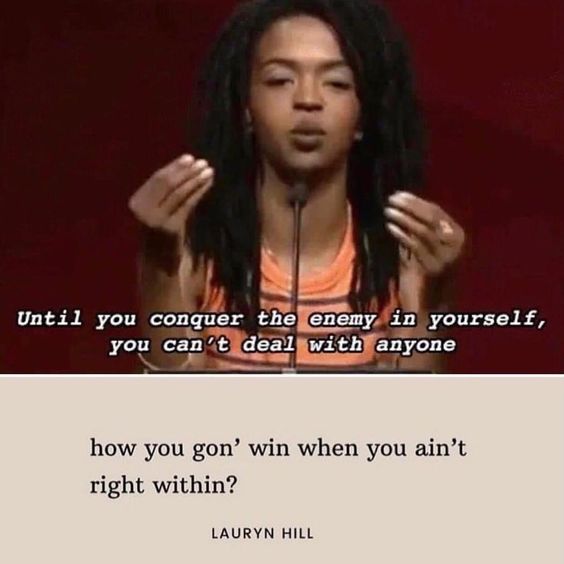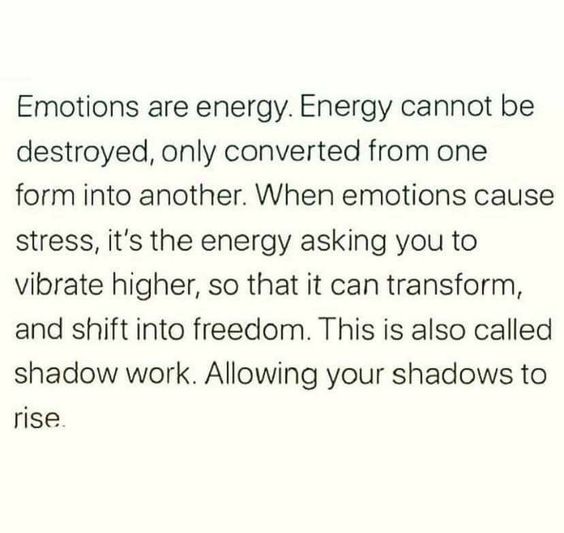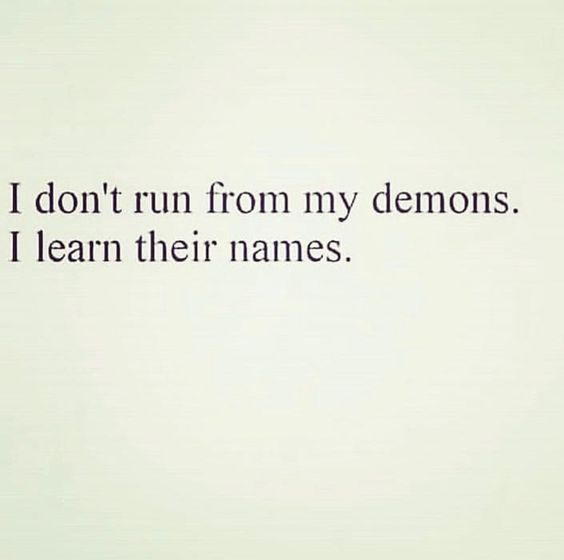“All evil is potential vitality in need of transformation.”
Sheldon B. Kopp, If You Meet Buddha On The Road, Kill Him! (Page 223)
“As children we owned all of ourselves. As adults, in response to the expectations of others, we have had to hide much of ourselves away, out of sight even from our own eyes. The cost of such voluntary losses is great. No one can afford to give up any part of himself. All of you is worth something. Even the evil can be a source of vitality if only you can face it and transform it.”
Sheldon B. Kopp, If You Meet Buddha On The Road, Kill Him! (Page 141)
“Confronting one’s own personal garbage is the way to begin.”
Sheldon B. Kopp, If You Meet Buddha On The Road, Kill Him! (Page 126)
“If we flee from the evil in ourselves, we do it at our hazard. All evil is potential vitality in need of transformation. To live without the creative potential of our own destructiveness is to be a cardboard angel.”
Sheldon B. Kopp, If You Meet Buddha On The Road, Kill Him! (Page 109)
“When we lay claim to the evil in ourselves, we no longer need fear its occurring outside of our control. For example, a patient comes into therapy complaining that he does not get along well with other people; somehow he always says the wrong thing and hurts their feelings. He is really a nice guy, just has this uncontrollable, neurotic problem. What he does not want to know is that his ‘unconscious hostility’ is not his problem, it’s his solution. He is really not a nice guy who wants to be good; he’s a bastard who wants to hurt other people while still thinking of himself as a nice guy. If the therapist can guide him into the pit of his own ugly soul, then there may be hope for him. Once this pilgrim can see how angry and vindictive he is, he can trace his story and bring it to the light, instead of being doomed to relive it without awareness. Nothing about ourselves can be changed until it is first accepted.”
Sheldon B. Kopp, If You Meet Buddha On The Road, Kill Him! (Page 108)
“No patient in psychotherapy can recover his own beauty and innocence without first facing the ugliness and evil in himself. [Carl] Jung tells us we have ‘dealt the devil… [no] serious blow by calling him neurosis.'”
Sheldon B. Kopp, If You Meet Buddha On The Road, Kill Him! (Page 105)
“The ‘night sea journey’ is the journey into the parts of ourselves that are split off, disavowed, unknown, unwanted, cast out, and exiled to the various subterranean worlds of consciousness… The goal of this journey is to reunite us with ourselves. Such a homecoming can be surprisingly painful, even brutal. In order to undertake it, we must first agree to exile nothing.”
Stephen Cope, via The Body Keeps The Score (Page 125)
“How the shadow appears in a dream depends on the ego’s attitude. For example, if a man’s attitude is friendly toward his inner shadow, and he is willing to grow and change, the shadow will often appear as a helpful friend, a ‘buddy,’ a tribal brother who helps him in his adventures, backs him up, and teaches him skills. If he is trying to repress his shadow, it will usually appear as a hateful enemy, a brute or monster who attacks him in his dreams. The same principles apply to a woman. Depending on her relationship to her shadow, she may appear as a loving sister or as a frightful witch.”
Robert A. Johnson, Inner Work (Page 50)
“Part X is the judgmental part of you, the antisocial part of you. It’s an invisible… force that wants to keep you from changing or growing. It wants to block your evolution. It wants to block your potential. Part X is the voice of impossibility. Whatever it is you think you need to do, it’s gonna tell you that’s impossible.”
Phil Stutz, Stutz
“…The more civilized and moral we outwardly become, the more potentially dangerous is the Shadow, which we so fiercely deny. The solution is not more repression and correctness. We can never alter human nature through enforced niceness. The pitchfork doesn’t work. Nor is the solution to seek release for our Shadow in the group, which is volatile and dangerous. Instead the answer is to see our Shadow in action and become more self-aware. It is hard to project onto others our own secret impulses or to overidealize some cause, once we are made aware of the mechanism operating within us.”
Robert Greene, The Daily Laws (Page 376)
